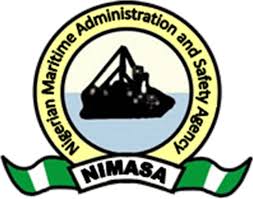Ship owners in the country have frowned at the multiplicity of agencies calling at visiting ships contrary to global practices. The stakeholders are also unhappy with plans to establish new agencies which they say would further compound the situation. Director General of the Nigerian Maritime Administration and Safety Agency (NIMASA) Dr. Dakuku Peterside, who disclosed this at the 2018 Half Year Maritime Forecast Review in Lagos, said that the ship owners are now asking NIMASA to help in effecting change. Peterside stated: “I have been receiving a lot of complaints by ship owners that different Government agencies board their vessels to request for documents which many a times result in duplication of duties and increase the delay in turnaround time of vessels.
So it means if we create new agencies we are simply going to over-burden the sector which is enjoying a new level of progression under President Muhammadu Buhari”. Peterside’s disclosures were contained in a statement signed by NIMASA’s head of Corporate Communications, Isichei Osamgbi, which further said that in order to avoid duplication of duties and support the Ease of Doing Business Agenda of the Federal Government, the Agency has a Memorandum of Understanding, MoU, with the Armed forces as well as collaborations with the Nigerian Customs Service, Nigerian Immigration Service, the Nigerian Police and even the Central Bank of Nigeria.
He further said that the current maritime regulatory agencies under the Ministry of Transportation have enough mandates to ensure safety and security in the sector adding that the Nigerian Navy could not be allowed to board merchant vessels for regulatory activities according to International Maritime Organisation (IMO) regulations, Merchant Shipping Act and other regulatory instruments that are in line with global best practices.
The statement added: “There is no way the Nigerian Navy can act as a regulator in the sector and we have been working together especially in line with the MoU that exists between us to ensure security in the sector which is in line with what the IMO stipulates and so we should not be thinking about creating more regulatory agencies or the Navy taking the job of other regulatory agencies. The best thing to do is to strengthen these agencies to be able to perform optimally”.
Peterside charged stakeholders to support the industry’s growth stating that things are changing at an incredible pace and that there is the need to support the current maritime agencies to dynamically position the sector for optimal benefits. Since his assumption of duties at NIMASA, Peterside has continuously advocated regular engagement of stakeholders to chart a way that is best beneficial to the growth of the Nigerian maritime industry and the economy.

